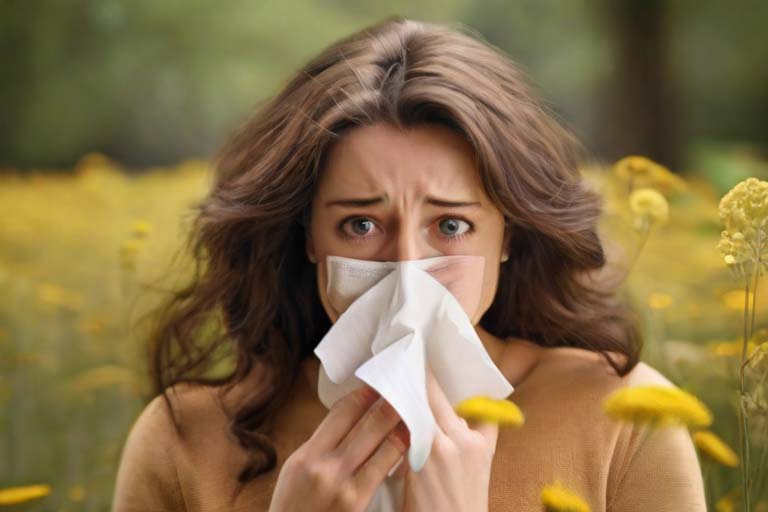

 Know the Ways to Get Rid of Allergies
Know the Ways to Get Rid of Allergies
Allergies can be managed through a variety of methods. Here are some ways to help alleviate allergy symptoms:
1. Avoid Allergens: Identify and avoid triggers that cause your allergies. Common allergens include pollen, dust mites, pet dander, mold, and certain foods. Limit exposure to these allergens as much as possible.
2. Keep Indoor Air Clean: Use high-efficiency particulate air (HEPA) filters in your home’s heating and cooling systems to trap allergens. Regularly clean floors, carpets, and surfaces to reduce dust and pet dander.
3. Use Nasal Irrigation: Nasal irrigation with a saline solution can help flush out allergens and mucus from your nasal passages, providing relief from congestion and sinus pressure.
4. Take Over-the-Counter (OTC) Medications: Antihistamines, decongestants, and nasal corticosteroid sprays are available over the counter to relieve allergy symptoms such as sneezing, itching, congestion, and runny nose.
5. Prescription Medications: If over-the-counter medications are not effective, your doctor may prescribe stronger antihistamines, nasal sprays, or other medications to manage your symptoms.
6. Allergy Shots (Immunotherapy): Immunotherapy involves regular injections of small amounts of allergens to gradually desensitize your immune system to them. This can help reduce the severity of allergic reactions over time.
7. Keep Windows Closed: During peak allergy seasons, keep windows closed to prevent allergens from entering your home.
8. Wear a Mask: When doing outdoor activities like gardening or yard work, wearing a mask can help filter out allergens like pollen and mold spores.
9. Monitor Pollen Counts: Stay informed about pollen counts in your area and try to limit outdoor activities on days when pollen levels are high.
10. Use Allergy-Friendly Products: Choose hypoallergenic bedding, pillows, and cleaning products to reduce exposure to allergens.
11. Stay Hydrated: Drinking plenty of water can help thin mucus and relieve congestion caused by allergies.
12. Manage Stress: Stress can exacerbate allergy symptoms, so practicing stress-reduction techniques such as meditation, yoga, or deep breathing exercises may help alleviate symptoms.
13. Consult an Allergist: If your allergies are severe or persistent, consider consulting an allergist for a comprehensive evaluation and personalized treatment plan.
It’s important to remember that what works for one person may not work for another, so it may take some trial and error to find the most effective combination of strategies for managing your allergies. Always consult with a healthcare professional before starting any new allergy treatment regimen.